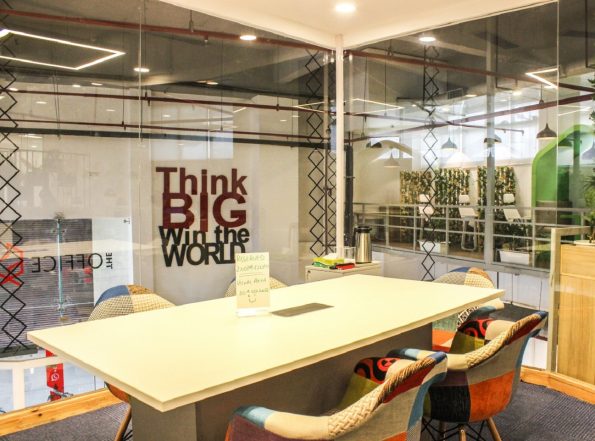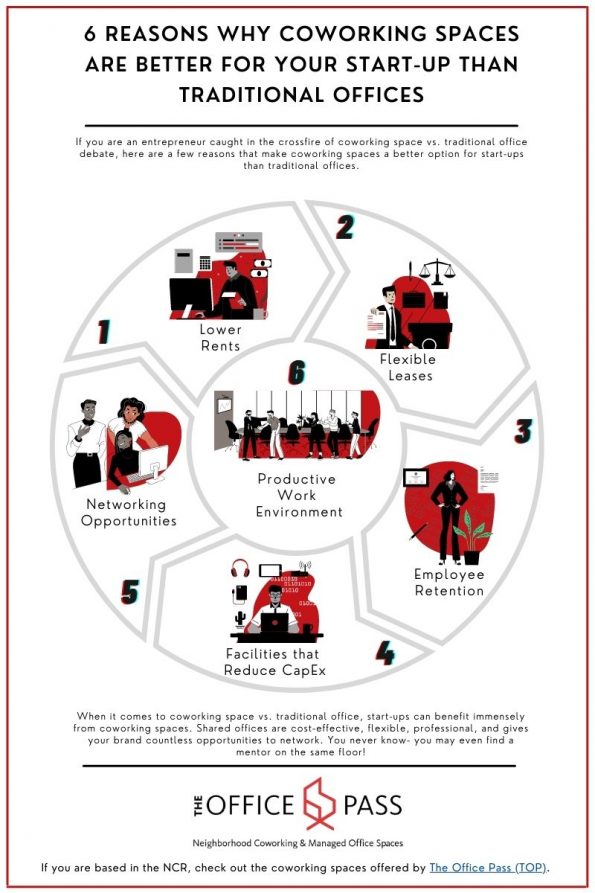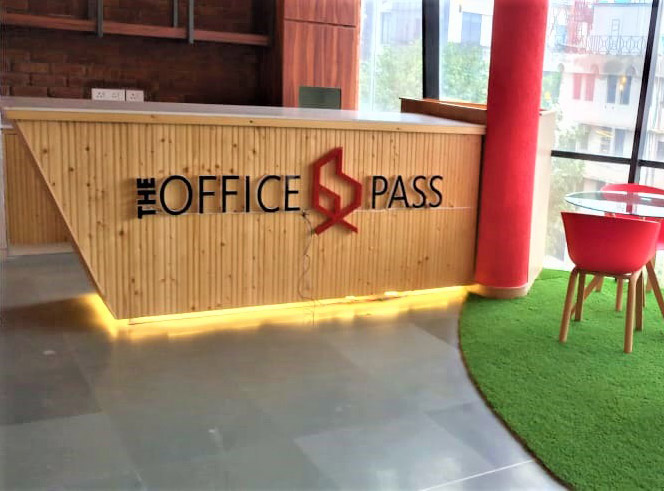Moving to an office is an important milestone in the journey of every start-up. However, it is easier said than done, especially in a country like India where commercial real estate prices are skyrocketing. More often than not, the traditional office real estate market is not friendly to start-up founders who are typically strapped for cash.
This is where coworking spaces and neighborhood offices score higher than traditional offices. Besides offering the most budget-friendly office spaces to businesses of all kinds and sizes, shared offices also help start-ups in other business aspects, such as networking, collaboration, employee retention, employee productivity, and more.

If you are an entrepreneur caught in the crossfire of coworking space vs. traditional office debate, read on. Here are a few reasons that make coworking spaces a better option for start-ups than traditional offices.
6 Reasons Why Coworking Spaces Are Better for Your Start-up than Traditional Offices
- Lower Rents
- Flexible Leases
- Networking Opportunities
- Employee Retention
- Facilities that Reduce CapEx
- Productive Work Environment
1. Lower Rents
Let’s start with the obvious! According to a report published by Knight Frank, established corporates spend around 9% to 12% of their total operating costs on real estate, while for start-ups, it could be more. One of the main pros of coworking spaces is that they are much cheaper than working out of a traditional office. As indicated by a 2019 report by JLL, coworking offices help save around 20% to 25% of costs compared to traditional offices.

Firstly, the rents/monthly charges of coworking offices are lower and more affordable, helping you keep your real estate costs to the bare minimum. Secondly, the offices come fully furnished – you don’t need to worry about finding furniture that fits the space or looking for professionals to build cabinets or do interior designing.
2. Flexible Leases
In most Indian cities, the lease for traditional offices is for at least 11 months. Not all start-ups are in a position to sign in to such a long lease, owing to financial constraints or rapidly growing needs. As the goals, plans, and requirements of start-ups keep changing, what they need in the first few years is flexibility – that’s exactly what coworking spaces offer.
One of the greatest advantages of coworking offices is that they provide a wide range of packages, including monthly, weekly, or daily plans. You are not tied into a long contract, so you can change the package to suit your growing needs or exit the workplace if required. For instance, you don’t need to rent out a large office or move into a smaller one when you upsize or downsize the team – you can simply add or remove a few desks into your contract.
3. Networking Opportunities
Networking is pivotal for all start-ups – that’s how you find new projects, new clients, new partnerships, and new talents for your team. The most notable difference between coworking and traditional office spaces is that the former has people from many different companies working in the same space while the latter has employees only from one company.
When you work out of shared offices, you’ll meet and interact with several businesses and professionals, including start-ups, established businesses, and freelancers. A quick conversation in the kitchenette could help you solve a problem or you may meet a freelancer who can come on board for a project. For example, when you are launching a product, you can collaborate with a graphic designer working next to you to create posters or partner with a digital marketing agency for your marketing requirements.

4. Employee Retention
The traditional work scenario has been changing for quite a while, and the ongoing pandemic has transformed it like never before. Today, employees are looking not just for fat salaries or steep career growth opportunities. Surveys show that remote working, work-life balance, flexibility, less travel, etc., are equally crucial for employee retention.
Such surveys and insights make one thing clear – start-ups looking to attract and retain talents must move away from traditional offices to a more hybrid model. Coworking offices and neighborhood offices offer flexibility and reduce commuting time, thereby reducing employee turnover.
5. Facilities that Reduce CapEx
Even a company that does most of its work digitally on a laptop or computer needs more than just that. Capital Expenditure or CapEx, which included all physical assets, can drain start-ups financially. For instance, when you set up an office, you need printers, a phone, air conditioners, etc. Besides, to keep your employees comfortable, you may also need to have a coffee machine, a microwave, and a water cooler.
This infrastructure comes built-in with coworking spaces, and you don’t need to worry about buying it or maintaining it. Nor do you have to concern yourself about overheads, such as security, electricity, air conditioning, and housekeeping. Coworking spaces also offer a variety of other services such as lunch-ordering, front desks, a nap room, and de-stressors like a pool table or yoga classes. They also organize training and recreational events in the evening that your team can attend.
6. Productive Work Environment
Employee productivity is important for all businesses, even more so when you are a start-up. One of the core pros of coworking space is that its very design and layout enhance productivity. Unlike a traditional office, shared offices use a combination of open layout designs, closed spaces, and break areas. Such a layout facilitates collaboration and communication while also ensuring privacy when required.
Coworking layouts also offer people a variety of spots to work at. When you are doing regular work, you can pick a seat in the open floor layout, and when you need to concentrate, you can choose a more secluded spot. When you need to collaborate or brainstorm, your team can work out of a cabin.
Final Thoughts
When it comes to coworking space vs. traditional office, start-ups can benefit immensely from coworking spaces. Shared offices are cost-effective, flexible, professional, and gives your brand countless opportunities to network. You never know- you may even find a mentor on the same floor!
If you are based in the NCR, check out the coworking spaces offered by The Office Pass. These ready-to-move-in spaces give your start-up the perfect platform to build your brand and grow. What’s more, you can also enjoy peace of mind knowing that many of your operational overheads have been taken off your task sheet. To find out more, contact us at 89998 28282.



